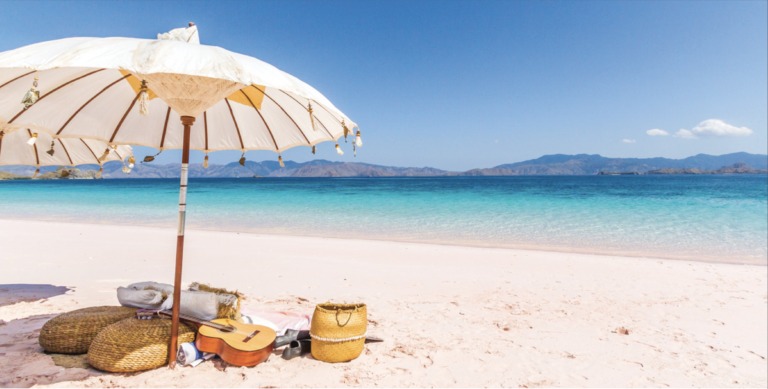Written by Drew Hamilton, Partner and Managing Director of Vivreau in North America
Before we all knew better, there was the pervasive notion that drinking water was only good if it came from a far away land, bore a name requiring specific emphasis or the twist of the tongue, and was captured in plastic bottles drawn from a romanticized source with deep history. In a marketplace dominated by daunting global brands, the idea of bottling, purifying, and even potentially monetizing drinking water drawn from a hotel’s own water main seemed downright unimaginable.
Such was the landscape of the North American market when Vivreau hit the scene with its call to bottle drinking water on premise by tapping into a hotel’s water main and purifying what was already available in abundant supply. The general North American business climate was not quite ready to wholeheartedly embrace the idea, save for a handful of forward-thinking independent restaurateurs and one very notable industry category: hospitality.
While many consumers were unconsciously “contributing” to the scourge of single-use plastic water bottles in landfills across America, a massive change was afoot in the hotel world with global conservation initiatives (including responsible water consumption efforts) penetrating every aspect of the properties of select operators. Laundering reduction commitments, energy smart infrastructure, lower flow water appliances, ethical materials sourcing and material waste reduction efforts were already in progress with measurable goals by influential players in the hotel industry while many other sectors still regarded the triple bottom line (environment, economic, and social) paradigm shift with immobilizing scepticism.
Early Adopters
It is perhaps not surprising, then, that some of Vivreau Water’s first clients were the progressively minded Operations Directors, Chief Engineers and bold GMs of hotels seeking to advance their brand’s stewardship programs. It took a broader perspective in those days to apprehend the value of bottling your own water and, more importantly, it took a significant degree of courage to forfeit the proven revenues associated with well-known international bottled water brands in favour of an as-yet unproven concept that leveraged mains-fed, bottled-on-premise drinking water.
It was really obvious from the beginning in North America in 2008, that hotel operators understood the importance, the benefits and need to adopt core sustainable practices like on-site water programs, it ultimately became a matter of ‘how’ to help them actually take the leap. Help create water programs with partners, not sell boxes (water machines), quickly became Vivreau’s mantra.
Some of those early adopters remain steadfast Vivreau clients today. In addition to significantly reducing their own (carbon) footprints, these clients have served as both champions of responsible water programs for their industry and sources of valuable data that shine a light on the power of an in-house water program, the merit of which is measurable across five major strategic pillars shared by virtually every hospitality brand in North America: Environmental Stewardship, Employee Health and Wellness, Brand Building, Revenue Generation, and Cost Savings.
The Case for Environmental Stewardship
As a rule, statistics vary widely according to the story being told, but it is with reliable consistency that reporting on plastic bottle consumption paints a dire picture. Globally, it is estimated that we now consume one million plastic bottles every minute as a species. There have been massive strides forward in the waste management landscape over the last decade or so including up-cycling applications for waste plastics (like shoes, for instance, made of ocean plastics), single-stream, mixed materials recycling to reduce the burden of waste handling on the consumer, and the advent of extended producer responsibility (EPR), which puts the onus on the producers of consumer materials to develop an end-of-life strategy for their responsible handling. Despite these advances, a staggering 91% of plastic bottles that leave the assembly line still do not get recycled (ibid.).
The results of this grim disparity between production and responsible collection of plastic materials are in many ways patently obvious; indeed, the “Great Pacific Garbage Patch” has more recently been the subject of many a photo essay. More insidious than this macro evidence, however, is the way in which the plastics we produce are changing the very biology of our natural world, becoming part of the physiology of our wildlife and even infiltrating the foods and beverages we consume. An eye-opening recent study of bottled water by the State University of New York revealed that 90% of products tested contained measurable quantities of microplastics, which are the result of widespread plastic waste and its degradation, as well as prolific use of plastic fibers in industrial production.
In light of this mounting evidence about the detrimental effects of single-use plastic bottles (and now, what we know is in some of the products they contain), it has become increasingly indefensible to cite the common notions of convenience and reliable quality as reasons for their continued use.
The hotel category is uniquely poised to lead the charge in new directions of responsible consumption. First, with hundreds of millions of room nights sold each year, it plays host to a global audience for whom it can lead by example; very few other industries wield this level of influence. Secondly, with guests drawing on resources 24 hours a day, it behoves the industry to find the most efficient, least environmentally invasive way to meet these demands. Finally, hotel groups in particular, have tremendous buying power, which translates into a unique ability to reshape the market, demanding of suppliers of goods and services that they embrace like-minded values.

Case in Point
Midtown Manhattan’s prestigious St. Regis Hotel has been a beacon for luxury in the city and a destination for worldly, savvy travelers for more than a century. Having a reputation for excellence on all fronts of hospitality has had the consequence of thrusting the hotel into the spotlight, its operation being the consistent subject of both guest and peer scrutiny. It is fitting, then, that St. Regis Hotel has found a way to uphold their commitment to sustainability that delivers against waste reduction and responsible product sourcing objectives while never straying from the property’s long-standing standards of hospitality. This balance between function and image is key to the success of St. Regis’s Vivreau water program, which has been underway for about a decade.
In addition to their 238 guest rooms, St. Regis is home to 15 conference spaces of varying sizes spread across 16,000 square feet of dedicated space, the largest venue accommodating parties of up to 300 guests. Prior to the adoption of Vivreau bottling systems, which effectively allow a client to bottle their own filtered still and sparkling water with reusable, branded glass bottles, the St. Regis purchased cases of single-serve bottled water products. As is the common practice, these bottled water products formed part of the conference and event invoice to the client, but nevertheless required hotel staff to receive pallets of goods, store them, refrigerate them, and then dispose of the waste, paid by the pound, following service.
Under the Vivreau program, St. Regis has diverted an estimated 1,000,000 single serve bottles (100,000+ a year for more than a decade) from landfills, waterways, and the recycling stream which requires significant energy consumption. In place of products that travel from halfway around the world to end up in New York City, St. Regis draws its water from central mains into Vivreau bottlers, which pulls the water through a 0.2 micron carbon block filter, removing unwanted contaminants, like the smell of chlorine, for instance, or turbidity from volatile weather. The water can then be dispensed, chilled, as either still or sparkling, into St. Regis’s inventory of commercial grade reusable glass bottles that bear the property’s logo and a short environmental message. Combined with employee access to the systems for hydration on shift, guest exposure to branded stewardship messaging, and the practical applications of having purified water on demand for service, the program has delivered on St. Regis’s objectives on all fronts.
Amortize progressive initiatives like this water program across all facets of the hotel’s operation and you are poised for long-term returns on your efforts.
Story is Paramount
The importance of this sort of check-multiple-boxes sustainability storytelling cannot be undersold. While a hotel can calculate its returns in black and white against its bottom line, the fact remains that prospective hotel guests, especially those in a saturated, competitive market, have no shortage of locations in which to spend their finite dollars and their decisions are not made against the relative fiscal prowess of prospective lodgings. Competing for share of wallet today means spending the time to understand the priorities of your guests and making those your own priorities. Demonstrable points of difference have evolved far beyond well-appointed rooms or personalized service, which are now non-negotiable demands for travelers, to include considerations like surprising amenities (think health-minded care stations for pets) or an explicit, transparent ethos of responsible business.
Travel industry intelligence platform Skift suggests that the concept of luxury accommodation cannot be divorced from clear and measurable sustainability practices. The contemporary Western hotel guest, who commits to her own suite of environmentally-minded practices at home, demands that her principles are not compromised when she is on the road. Force her to make concessions to accommodate for your lack of explicit commitment to that which she holds dear, and she will simply move on to another venue.
With this in mind, it warrants a moment to consider how your brand will be remembered by your guests. Wouldn’t it be nice to know that your property was seen as not only well ahead of the curve but that it also contributed directly to positive transformation of your industry?


